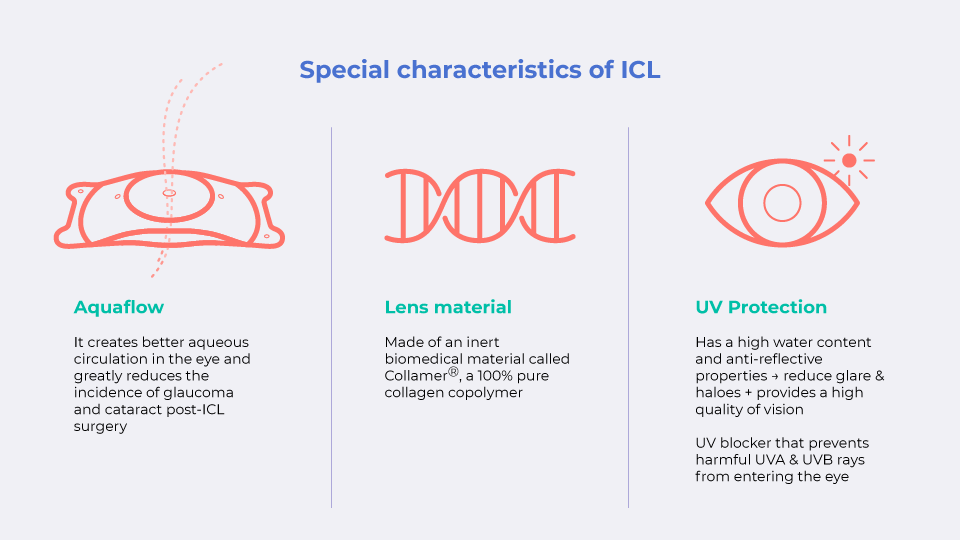ICL (Implantable Collamer® Lens)
Implantable Collamer® Lens (ICL) Video
First developed in 1992, the ICL has since undergone extensive development and clinical trials. In the past 28 years, the ICL has been successfully implanted in over 1 million eyes.
What is ICL?
Implantable Collamer® Lens (ICL) is used to treat moderate to severe refractive errors, namely:
- Myopia (near-sightedness)
- Hyperopia ("youthful" long-sightedness)
- Astigmatism
ICLs differ significantly from other refractive methods. ICL is an additional lens inserted into your eye behind the iris and in front of your natural lens. It does not involve changing the shape and/or structure of the cornea (the clear outer layer of the eye).
Special characteristics of ICL

What are the Advantages of ICL?
The Visian ICL™ and its unique Collamer® composition offer numerous advantages including:
- Removable or reversible
- Good quality of vision
- Wide range of treatment powers
- Those with thin corneas and/or high refractive power
- Lens replacement - aesthetically pleasing and safe
- Patients with irregular corneas due to scarring or disease e.g. keratoconus
- Proven track record
- Does not cause dry eyes
- Small incision
Who should consider ICL Surgery?
In general, ICLs can treat higher degrees of myopia of up to -18D (-1,800°), Hyperopia (‘Youthful’ long-sightedness) up to +4.5D (+450°) and Astigmatism of up to 6D (600°), while LASIK is usually limited to a maximum of -12D to -14D (1,200 to 1,400°). Hence, implants are especially suitable for those with high myopia but can also be used to correct lower degrees if the patient is suitable. ICL surgery is a very good alternative for patients who are not good candidates for LASIK or TransPRK due to thin or abnormal corneas or who have a pre-existing dry eye.